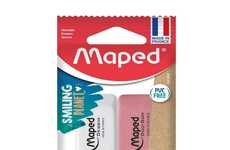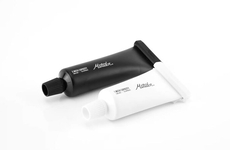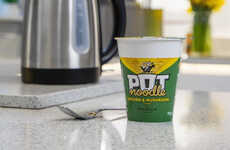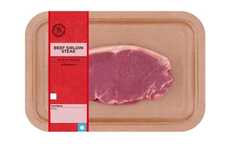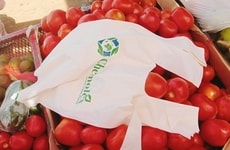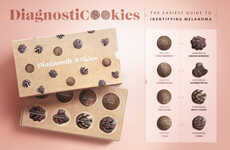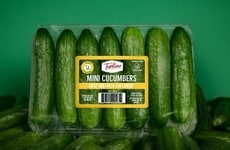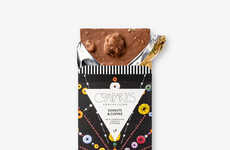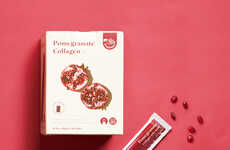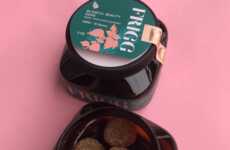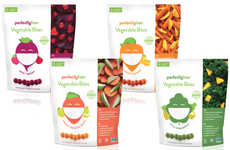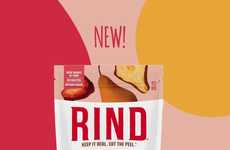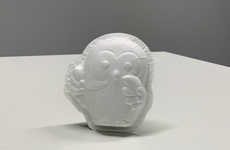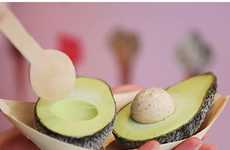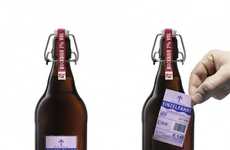
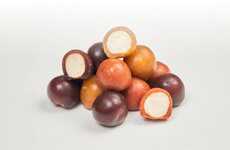

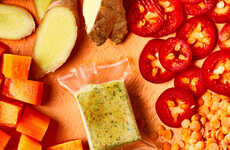
Food and beverage packaging materials are revamped for waste-free consumption
Trend - Brands are demonstrating an attentiveness to plastic waste by creating edible food and beverage packaging as a sustainable alternative. These packaging options have a number of advantages, including lowering food waste, breaking the cycle of waste, and offering nutritional advantages.
Insight - As more consumers recognize the wasteful nature of food and beverage packaging, there is a shift toward solutions that minimize waste and harm to the environment. In response, brands are debuting alternatives that transform disposable items into an integral part of the food supply chain, reducing reliance on single-use plastics and non-recyclable materials. Businesses that address concerns relating to packaging waste can attract consumers who value the ecological impact of their purchases.
Insight - As more consumers recognize the wasteful nature of food and beverage packaging, there is a shift toward solutions that minimize waste and harm to the environment. In response, brands are debuting alternatives that transform disposable items into an integral part of the food supply chain, reducing reliance on single-use plastics and non-recyclable materials. Businesses that address concerns relating to packaging waste can attract consumers who value the ecological impact of their purchases.
Workshop Question - How can your brand transform a significant source of waste into a circular product?
Trend Themes
1. Biodegradable Composite Packaging - Innovative materials like bio-cellulose provide transparent, consumable, and biodegradable packaging solutions that resemble plastic yet offer an eco-friendly disposal process.
2. Edible Food Coatings - Cutting-edge plant-based coatings inspired by natural fruit skins allow for sustainable snack consumption while enhancing the eating experience.
3. Plant Protein Packaging - High-performance, edible packaging made from plant proteins serves as a sustainable alternative to single-use plastics, extending the shelf life of products and minimizing environmental impact.
Industry Implications
1. Food and Beverage - Edible and biodegradable packaging innovations are reshaping sustainability practices within the food and beverage industry.
2. Materials Science - Advancements in bio-cellulose and plant-based materials are driving the development of alternative, eco-friendly packaging solutions.
3. Agriculture - Utilizing agricultural waste and plant proteins for packaging applications can significantly reduce reliance on polluting plastics and promote circular economy principles.
4 Featured, 31 Examples:
95,276 Total Clicks
Date Range:
Jul 23 — May 24
Trending:
This Year and Hot
Consumer Insight Topics:
